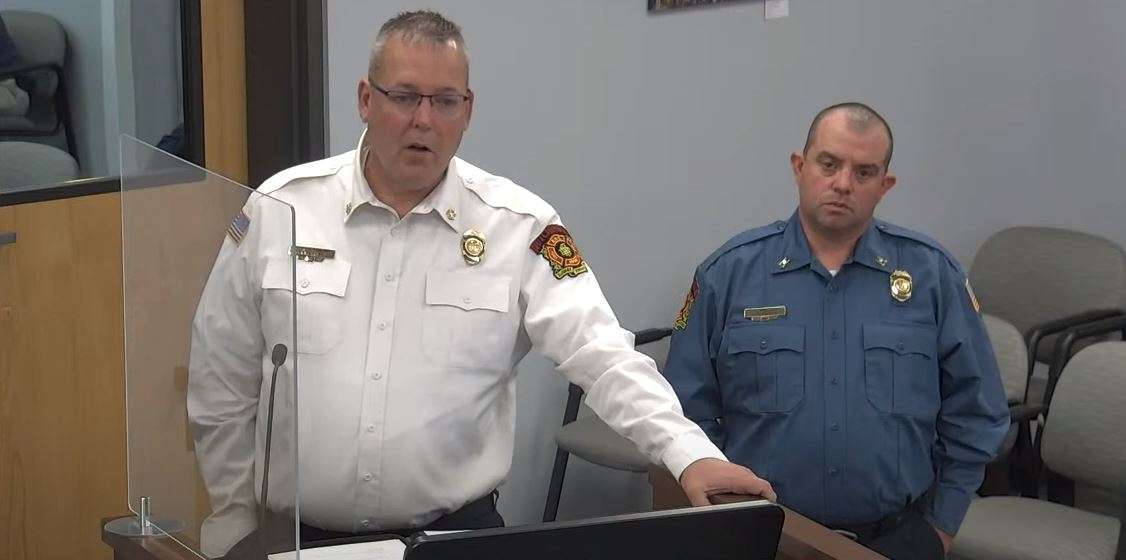
NICK GOSNELL
Hutch Post
HUTCHINSON, Kan. — Both the Board of County Commissioners and the Hutchinson City Council agreed that the three brush trucks, new personal protective gear and bringing existing brush trucks up to current standards were worth spending money on when they met Tuesday. Hutchinson Fire Chief Steven Beer said this is about keeping his firefighters safe.
"I almost lost two firefighters here last week and it really bothered me," Beer told the City Council Tuesday night. "It has bothered me immensely. I don't think anybody here realizes how close we had some of our calls with a truck that was burned up. I've got to do everything as your chief to make sure my men and women on the front lines battling these things on a daily basis are safe. I say a prayer every night that I don't have to be the person knocking on somebody's door at 2:00 in the morning saying we lost a firefighter and I take that to heart."
Beer also asked for replacement for lost tools, hose and equipment from the recent fires. The total request comes to $880,000. Each governing body will contribute half of the cost.
"My men and women deserve to have the best protective gear to do the jobs that they do," Beer said. "Our starting firefighters make $14.48 an hour. None of my firefighters do this to get rich. It's my job to make sure that they go home the next day and make sure they have the equipment and the tools to do their job. I appreciate the support that you have given our organization and I think this truly sends a strong message to my organization. My president is right here of Local 179 and it sends a strong message to my men and women that they know that you have their backs and you're supporting them when they are on the front lines battling these situations."
Union president and Captain Troy Mueller explained to the council how far they've come in wildland firefighting.
"When we merged with the county in 2000 and started running outside of the city into the county and started fighting wildland fires, we were still fighting wildland fires in the same gear that we go into structure fires with," Mueller said. "We didn't have anything for wildland. In a couple of years, we actually got brush coats, lighter weight coats, but we were still wearing our structural firefighting pants. We moved up from that to where we actually had wildland pants and wildland coats and boots and the first set that we got was awarded on a 50-50 grant from the Kansas Forest Service. That was a huge step forward for us in being able to fight wildland fires and not having to wear the cumbersome heavy gear that we wear to go into structure fires. The fatigue level when you're out on those, it just increases greatly when you wear that heavy gear. We have been replacing that as it needed to be replaced, but a lot of that gear, it's over 10 years old. The number of wildland fires that we go on annually have been increasing every year. We go on more and more grass fires every year. As more people move out into the urban interface, the threat increases to our citizens because they are in that area and so you have that greater threat of grassland fires in the wildland urban interface."
With warmer temperatures and less grazing going on, in addition to the invasive cedars getting into the grassland, there's just more fuel and drier fuel for the fires than there used to be.





